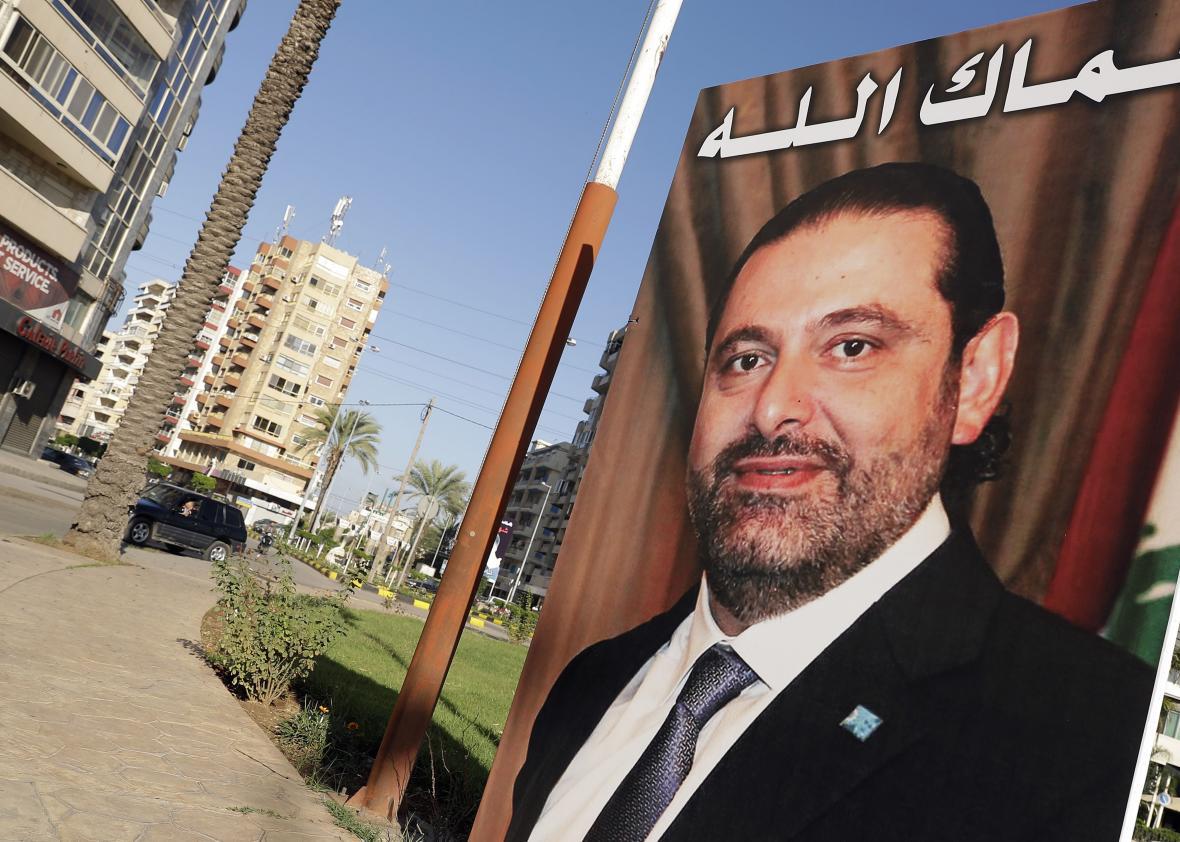Even by the standards of Lebanon’s fractured and turbulent politics, the current situation involving (former?) Prime Minister Saad Hariri is bizarre.
Hariri unexpectedly resigned during a trip to Saudi Arabia. In a televised statement, Hariri said he believed his life was in danger and condemned Iranian interference in the affairs of Lebanon and the greater Middle East. The resignation happened at almost the same time that Saudi Arabia was detaining dozens of princes and former officials in what appears to be a power play by Crown Prince Mohammed bin Salman. Given that Hariri’s statement sounded like the sort of thing the Saudis might draft, Iran’s allies in Lebanon were quick to accuse the kingdom of forcing him to resign. Anonymous U.S. officials told Reuters that Crown Prince Mohammed and other Saudi officials had “encouraged” Hariri to step down.
Since then, there have been increasing indications that Hariri himself has been detained. Lebanon’s president is demanding that he return home to explain the circumstances around his resignation. Lebanese officials say they believe he is being kept under a form of house arrest. The Saudis have denied that his movements are being restricted, but he himself has not, nor has he spoken to journalists or his political allies back in Lebanon. His private plane returned to Beirut on Wednesday—without him on it.
He did make a one-day visit to the United Arab Emirates—a close Saudi ally—earlier this week, before returning to Saudi Arabia. He has also met with several foreign diplomats including the French ambassador and the U.S. charge d’affaires. France’s foreign minister said that “as far as we know,” there are no restrictions on his movements. U.S. State Department spokeswoman Heather Nauert had this extremely unilluminating exchange with reporters on Thursday:
It would be, to put it mildly, deeply unusual for one country to essentially detain the head of government of a foreign country. The most comparable possible recent analogue I can think of involves Haitian President Jean-Bertrand Aristide, who was flown out of Haiti by the U.S. military after resigning amid increasing unrest in 2004. Aristide claimed later that he had been forced to leave by the U.S., though the Bush administration denied it.
As for Hariri, he is a dual Saudi-Lebanese citizen and ally of Saudi Arabia. But the Saudis have been losing patience with him since last year, when a coalition government in Lebanon was formed that included Iran-backed Hezbollah. This was a major step for Lebanon: Hezbollah is accused of masterminding the 2005 assassination of Hariri’s father, who was also prime minister. That coalition has now unraveled.
Things could soon get much worse. Saudi Arabia has ordered its citizens out of Lebanon, raising fears of war between Saudi Arabia and Hezbollah, as a proxy for Iran. The U.S. has strongly backed Saudi Arabia, and President Trump tweeted in support of the arrests of the princes and officials last weekend, saying, “I have great confidence in King Salman and the Crown Prince of Saudi Arabia, they know exactly what they are doing.”
I’m glad he’s so confident, but at the very least, the U.S. should be taking steps to prevent a new Middle East war from breaking out and trying to get some clarity on whether the prime minister of a sovereign country is essentially being held hostage.
